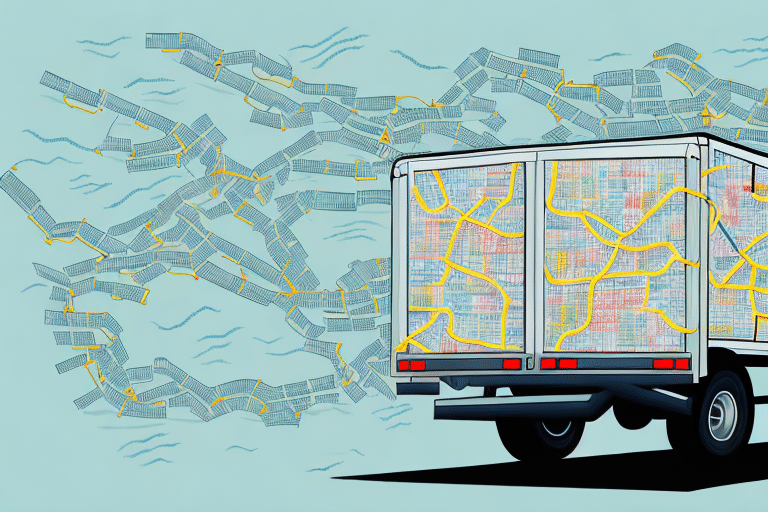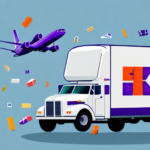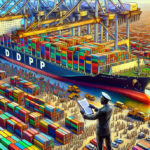Understanding Freight Charges in Modern Logistics
Freight charges are a critical component of the total cost of goods for buyers, encompassing the fees associated with transporting products from sellers to buyers' locations. Effective management of these charges is essential for businesses aiming to optimize expenses, negotiate better terms with suppliers, and ensure timely delivery. This comprehensive guide delves into the various aspects of freight charges, including their types, influencing factors, calculation methods, and strategies for management and reduction.
Types of Freight Charges
Transportation Fees
Transportation fees are the primary costs associated with moving goods from one location to another. These fees vary based on the mode of transportation, distance, and carrier rates. For instance, airborne shipments typically incur higher costs compared to sea or ground transportation due to speed and fuel consumption.
Fuel Surcharges
Fuel surcharges are additional fees imposed by carriers to offset fluctuations in fuel prices. According to the U.S. Bureau of Labor Statistics, fuel costs account for a significant portion of transportation expenses, making surcharges a common practice in the industry.
Accessorial Charges
Accessorial charges cover extra services beyond standard transportation, such as liftgate service, inside delivery, redelivery, and appointment fees. These charges ensure that specific handling requirements are met, enhancing the efficiency and safety of the shipping process.
Insurance Fees
Insurance fees provide coverage for goods during transit, protecting against potential losses or damages. The Insurance Information Institute highlights the importance of insuring valuable shipments to mitigate financial risks.
Detention and Expedited Service Fees
Detention fees are charged when carriers experience delays in loading or unloading, compensating for the time lost. Expedited service fees apply when faster delivery is required, often involving additional resources to meet tight deadlines.
Factors Influencing Freight Charges
Distance and Mode of Transportation
The distance between the origin and destination significantly impacts freight charges. Additionally, the chosen mode of transportation—air, sea, rail, or road—affects costs, with air freight generally being more expensive but faster than other modes.
Weight and Volume
Both the weight and volume of goods determine freight charges. Carriers use dimensional weight pricing to account for the space occupied by shipments, as outlined by the FedEx Dimensional Weight Calculator.
Seasonality and Demand
Freight charges fluctuate with seasonal demand. Peak periods, such as the holiday season, see increased rates due to higher demand for shipping services. Conversely, off-peak times may offer more competitive pricing.
Destination Specifics
Shipping to remote or international locations can incur higher charges due to increased logistical challenges and additional fees like customs duties and taxes. The U.S. Customs and Border Protection provides guidelines on international shipping requirements.
Calculating Freight Charges
Accurately calculating freight charges involves considering multiple factors, including weight, volume, distance, and additional services. Buyers can utilize online freight calculators provided by carriers or consult with logistics providers to obtain precise estimates. Tools such as the UPS Shipping Calculator aid in determining expected costs based on specific shipment details.
Impact of Freight Charges on Business Operations
Freight charges directly affect a buyer's cost of goods sold (COGS), influencing profit margins and pricing strategies. High freight costs can erode profitability, while efficient freight management can enhance competitiveness. Businesses must balance shipping expenses with service quality to maintain customer satisfaction and financial health.
Negotiating with Carriers
Negotiating favorable rates and terms with carriers can lead to significant cost savings. Building long-term relationships and leveraging shipping volumes are effective strategies for securing better pricing.
Alternative Shipping Methods
Exploring alternative shipping methods, such as intermodal transportation or consolidating shipments, can reduce costs. Intermodal solutions, which combine multiple transportation modes, offer flexibility and potential savings.
Strategies to Reduce Freight Charges
Shipment Consolidation
Consolidating multiple shipments into a single delivery reduces the number of trips and associated costs. This approach not only lowers freight charges but also minimizes environmental impact.
Optimizing Packaging
Efficient packaging minimizes dimensional weight and prevents oversized or overweight shipments, avoiding additional charges. Using the appropriate size and materials ensures cost-effectiveness and product safety.
Utilizing Freight Management Software
Freight management software streamlines the shipping process by comparing rates from different carriers, tracking shipments, and managing inventory. Solutions like Flexport provide comprehensive tools for optimizing logistics operations.
Early Planning and Documentation
Planning shipments in advance and ensuring all necessary documentation is complete helps prevent unexpected fees and delays. Accurate paperwork facilitates smooth customs clearance and reduces the risk of additional charges.
Common Mistakes in Managing Freight Charges
Underestimating Costs
Failing to account for all freight-related expenses can lead to budget overruns. It's essential to consider all potential charges, including accessorial fees and surcharges, when budgeting for shipments.
Poor Communication
Lack of clear communication with carriers and logistics providers can result in misunderstandings, missed deadlines, and unexpected fees. Establishing transparent communication channels ensures that all parties are aligned on shipping requirements and expectations.
Inadequate Record-Keeping
Maintaining accurate records of shipments, rates, and charges is crucial for tracking expenses and identifying cost-saving opportunities. Proper documentation aids in resolving disputes and ensuring accountability.
Future Trends in Freight Charges and Logistics
The freight industry is evolving with advancements in technology and changing market dynamics. Emerging trends include the integration of artificial intelligence and automation to optimize routing and reduce costs, as well as a growing emphasis on sustainability to minimize environmental impact. Innovations such as autonomous vehicles and drone deliveries are poised to transform the logistics landscape, offering new opportunities and challenges for businesses.
According to a McKinsey & Company report, digital transformation in freight management can lead to significant efficiency gains and cost reductions, highlighting the importance of adopting advanced technologies in modern logistics operations.
Conclusion
Understanding and effectively managing freight charges is vital for buyers aiming to control costs and enhance their supply chain efficiency. By comprehending the various types of freight charges, the factors influencing them, and implementing strategic management practices, businesses can optimize their logistics operations and maintain a competitive edge in the market. Staying informed about industry trends and leveraging technology further empowers buyers to navigate the complexities of freight management successfully.






















